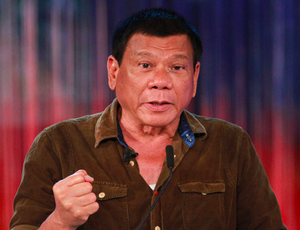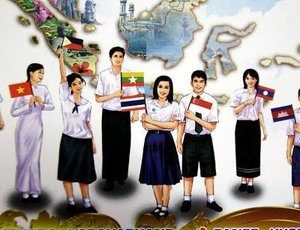In addition, a rise in the minimum wage may inspire Malaysians to take jobs with increased salaries and decrease the Malaysian economy’s reliance on foreign workers. Understanding this policy will likely be of great importance for wage sensitive industries as well as companies seeking to supply consumer goods to the Malaysia market.
Vietnamese Labor Under TPP: A Guide to Commitments and Compliance
By: Dezan Shira & Associates
Editor: Aysha Nesbitt
Vietnam is on its way to being the largest beneficiary of the Trans-Pacific Partnership (TPP). The agreement will produce greater access to foreign markets and foreign direct investment for Vietnam through the reduction of 18,000 tariff lines on industrial and agricultural products. However, in order to gain access to these reductions, Vietnam is expected to comply with labor standards outlined in the agreement as well as specific commitments made under the US-VN Plan for Enhancement of Trade and Labor Relations.
TPP Labor Standards
A predictable portion of the TPP’s labor standards require Vietnam to abolish forced or compulsory labor, including child labor. The country must also actively discourage the importation of goods from sources where products are in whole or partially produced by forced labor. In order to ensure this policy is strictly followed, Vietnam will be required to establish a labor council of government representatives who will monitor the implementation of the labor reforms.
Once the TPP comes to fruition, the council will be responsible for reviewing and accessing the reforms at the end of the first year and every two following. Other reforms that Vietnam must establish are acceptable conditions of work pertaining to minimum wage, hours of work, as well as safety and health conditions. Each province in Vietnam will be responsible for implementing, regulating, and maintaining these reforms to the satisfactory degree.
ASEAN Legal and Tax Alert: Developments in Mekong Tax & Financing
By: Dezan Shira & Associates
Editor: Maxfield Brown
Thailand – Business Collateral Act
Starting on July 2, 2016, small and medium sized enterprises in Thailand will be provided greater access to loans within the Kingdom. As part of the Business Collateral Act, passed in November of 2015, the scope of currently available credit lines will be broadened while at the same time ensuring those providing loans with the ability mitigate increased risk exposure.
For businesses currently seeking financing, restrictions on collateral within Thailand have been a serious impediment to the acquisition of funding. Under existing laws, the only collateral options available include mortgaging under very limited circumstances or a pledge system that surrenders assets to the lender during the duration of repayment.
A major component of BCA is its expansion of collateral options to allow for companies to make better use of their assets during repayment and to give businesses a greater variety of collateral options. The chart below contrasts the current and upcoming policies: While the BCA is sure to increase the availability of capital to growing businesses throughout the country, Dezan Shira & Associates would like to draw investors’ attention to a number of restrictions, penalties, and compliance requirements that have been placed on the financing process:
While the BCA is sure to increase the availability of capital to growing businesses throughout the country, Dezan Shira & Associates would like to draw investors’ attention to a number of restrictions, penalties, and compliance requirements that have been placed on the financing process:
- Receiving Collateral: Financial institutions are the only actors permitted to receive collateral under the BAC.
- Business Collateral Agreements: Required for all collateral arrangements. All Agreements must be registered with the Business Collateral Registration Office.
- Preferential Claims: Pursuant to Business Collateral Agreements, those providing loans and receiving collateral shall have preferential claim over these assets. Claims will remain valid even if the assets in question have been transferred to a third party.
- Violations: any divulgence of confidential information, withholding of facts, or provision of false statements will be classified as a violation of the BCA. Punishments for these offenses can include fines and jail time of up to three years.
Rodrigo Duterte’s Economic Vision: The Punisher’s Plans for the Philippines
As Philippine president-elect Rodrigo Duterte prepares to take office on June 30, investors and business people both at home and abroad are wary of how the audacious politician will impact the country’s booming economy. Under President Aquino, the Philippines enacted several liberal macroeconomic reforms and experienced an average GDP growth rate of 6.2 percent, leading the Oxford Business Group to name the country the best economy in South East Asia. However, widespread anger over elitism, corruption, inequality, and crime catapulted the controversial politician to the country’s highest office despite little explanation of his economic policies.
Duterte has made international headlines for his crude and seemingly off-the-cuff anti-establishment remarks, while drawing anxiety from some corners due to his uncompromising tough on crime approach and implicit support for extrajudicial vigilante killings, giving him the monickers “Duterte Harry” and “The Punisher”. His populist campaigning, self-description as a socialist, lack of commitment to the rule of law, and remarks that he does not know much about economics or care about the stock market have unnerved investors who fear a reversal of the previous administration’s liberal economic reforms.
To allay these anxieties, Duterte recently announced an eight-point economic plan setting out his agenda to maintain the Philippines’ vigorous growth. The plan addresses rural development, tax reform, corruption, education, tourism, ease of doing business, foreign investment, and public-private partnerships.
Despite Duterte’s fiery and unpredictable rhetoric, he appears set to continue former president Benigno Aquino’s reforms and further open up the Philippines to foreign investment. While Duterte’s presidency promises to be eventful and campaign pledges may not ultimately be wholly fulfilled, investors can take solace in his reassurances to the business community and commitment to attracting foreign investment.
Law and Order
Duterte’s principal campaign promise to strengthen law and order features prominently in his economic plans. Duterte contends that eliminating gangs and organized crime will reassure investors wary of entering the Philippines due to concerns over their own personal safety. He touts his experience as mayor of Davao, where rampant lawlessness once earned the city the designation the “Nicaragua of Asia”, but now boasts the lowest crime rates in the country and strong foreign investment.
In addition to expunging urban crime, Duterte has pledged to quell ongoing conflicts and insurgencies with Islamist and Communist rebels in the South, principally on the island of Mindanao. While Duterte is notoriously ruthless on crime, even admitting to killing criminals himself, he has signaled his openness to enter peace talks with rebels. If successful, he plans to promote the area – the Philippines’ second largest island and home to over 20 million people – for tourism, agriculture, and infrastructure investment.
Labor Mobility in ASEAN: Current Commitments and Future Limitations
With the establishment of the ASEAN Economic Community (AEC) at the end of 2015, ASEAN achieved a significant milestone in the region’s growing political, economic, and cultural integration. As set out in 2007’s ASEAN Economic Blueprint, the AEC seeks to “transform ASEAN into a region with free movement of goods, services, investment, skilled labour, and freer flow of capital.” While considerable progress has been made in liberalizing and normalizing the region’s standards in most of these areas, establishing the free movement of skilled labor lags appreciably behind.
Although ASEAN has clearly stated its goal to promote skilled labor mobility, current policies not only trail the European Union, where freedom of movement is essentially unencumbered, but also less ambitious regional trade agreements such as the North America Free Trade Agreement (NAFTA) and the Caribbean Community (CARICOM). The lack of a cohesive regional framework, nationalist and protectionist policies, and middling political will impede ASEAN’s skilled labor mobility. However, employers can still take advantage of policies that facilitate the hiring of skilled workers in certain sectors to address the frequent skilled labor shortages found within ASEAN countries.




